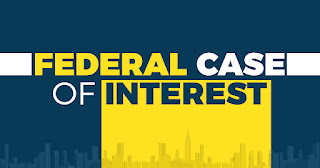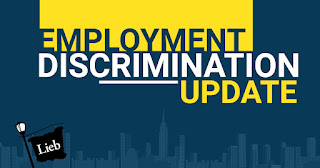There are 3 major topics that you should be on the watch for as the Supreme Court's term starts on the first Monday of October, and they all center around the conservative's 6-3 majority on the bench. With their majority, will the conservatives limit abortion, expand gun rights, and protect religion?
Here is what you should know:
Abortion: Every pundit out there is telling you that Roe v. Wade is in danger during this term because Mississippi's 15-week abortion law will be heard in the case of Dobbs v. Jackson Women’s Health, which will be argued on December 1st.
You should know that Roe sets the state's right to restrict abortion at the point of viability, except if abortion is necessary, in appropriate medical judgement. However, hasn't the point of viability shrunk over the years from when Roe was decided in 1973. On the other hand, as Carliss Chatman wrote, in the Washington and Lee Law Review, "If a Fetus Is a Person, It Should Get Child Support, Due Process, and Citizenship," no? It seems that you need to go all in with whichever belief you have as anything short seems like you will be full of pure political conjecture - when do you think that a fetus is first a person?
Guns: New York State (NYS) went after the National Rifle Association (NRA) in Bankruptcy Court earlier this year, and, now, it's the NRA's turn to come after NYS. The NRA is before the Supreme Court by backing the New York State Rifle & Pistol Association in New York State Rifle & Pistol Association v. Corlett. The case asserts that NYS' concealed carry license law, which requires "proper cause" to carry a firearm, is unconstitutional. The case will be argued on November 3rd.
You should know that "proper cause" means that an individual must demonstrate a special need for self-protection as distinguishable from that of the general community in order to carry in the State. Do you think that this makes sense as a standard or should concealed carry just be blanketly permissible, as the Plaintiff's argue is their right under the Second Amendment? On the other hand, don't unsafe public spaces offend the First Amendment's protections of assembly, association, and speech? It seems like we have an Amendment standoff and wouldn't restrictions on guns in public spaces be appropriate to make public spaces safe for democratic participation, as argued by the New York Civil Liberties Union in the case? What say you on this tough one?
Religion: Flags and religion have been the biggest thing for the Republican Party since the 2020 elections and they are coming together in Shurtleff v. Boston where Boston flew a LGBT rights flag, but not one with the cross at city hall. Now, the Christians want their cross over the City, but what about the separation of Church and State in the First Amendment?
You should know that freedom of religion is protected in the First Amendment, but that LGBT rights are not. However, is religion free if the state picks one over another? On that note, do you remember the separation of Gay and State being in the Constitution, because I don't?
What Really Matters: The public is often looking for something that doesn't exist. As Justice Alito explained in response to tremendous outrage by abortion groups at the Supreme Court refusing to stop the Texas abortion law, those allegations are "false and inflammatory... "[w]e did no such thing and we said that expressly in our order." Instead, the Court ruled on procedure and that was lost on everyone who just reads salacious headlines with the word abortion in the title. If you actually read the decision, it's not about abortion at all, but, actually about something much more decisive and terrifying.
You should know that Chief Justice Roberts explained that the real question in the case was "whether a state can avoid responsibility for its laws" by "essentially delegat[ing] enforcement to...the populace at large." Stated otherwise, the law let private citizens sue whoever they found to have violated the law. Taking that to its logical conclusion, should we deputize neighbors to sue each other for violating our laws? Should we be able to get $5,000 if we go after a neighbor for speeding on the highway? What about $7,500 for littering? Maybe, $25,000 for dealing drugs? Is that the future that we want? You decide.



